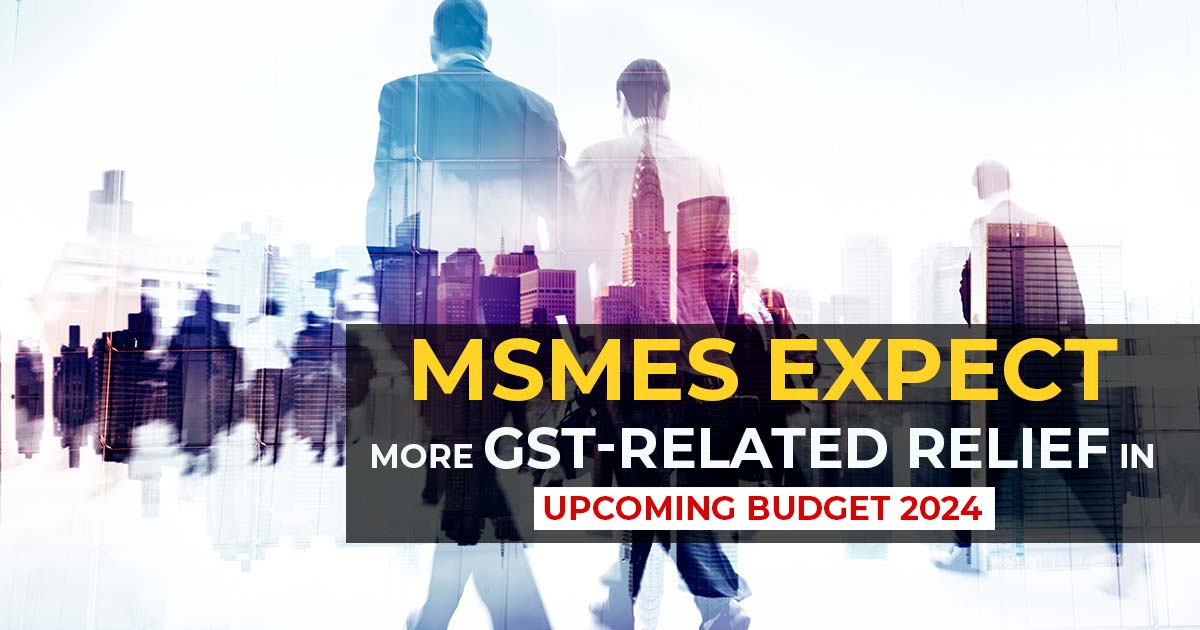
The upcoming Union Budget for the fiscal year 2024-25 might introduce measures to alleviate the minimum threshold, adjust input tax credit, and revise GST rates on insurance products, aiming to facilitate smoother business operations. Nevertheless, Finance Minister Nirmala Sitharaman is likely to refrain from significant alterations to the GST rates due to the presentation of an interim budget during an election year.
Anticipations among small and medium business owners centre around potential relief in the minimum threshold for Goods and Services Tax (GST) registration in this year’s Budget.
Such a move could serve as a significant boost for small-scale suppliers, reducing their compliance costs and enhancing ease of doing business. Currently, GST registration is mandatory for units with a turnover exceeding Rs 40 lakh for goods (Rs 20 lakh for certain special category states) and Rs 20 lakh for services.
Raising the limit to Rs 50 lakh would offer respite to these small units. Additionally, the industry is eagerly anticipating clarification on the necessity of GST registration for businesses focused on exports in the upcoming Union Budget scheduled for February 1.
Exporters are also hopeful for an announcement regarding the simplification of the input tax credit (ITC) process in this year’s budget. Despite the RBI and the Foreign Exchange Management Act eliminating the need for a Foreign Inward Remittance Certificate (FIRC), exporters are still required to submit these certificates under the GST regime.
Finance Minister Nirmala Sitharaman has refrained from introducing significant alterations to the GST rate structure through the Finance Bill previously. Nevertheless, she has revealed intentions to enact amendments in the GST rules to reform the new tax system.
In the FY 2023-24 budget, the Finance Minister declared several amendments. Among them was the elevation of the minimum threshold for prosecuting GST offences related to issuing invoices without supplying goods or services, raised from Rs 1 crore to Rs 2 crore.
According to the most recent GST collection figures, the government is on track to surpass the FY24 target. The consistent monthly rise in collections might prompt the Finance Minister to revise the GST collection estimate upward when presenting the Interim Budget on February 1.
In the initial eight months of FY24, GST collection reached Rs 13.32 crore, marking a 12 per cent increase compared to the April-November period of 2022. With this continual increase in monthly GST collections, small and medium enterprises across different sectors are optimistic about potential relief in GST for diverse goods and services.
Understanding Goods and Services Tax (GST)
Introduced on July 1, 2017, the Goods and Services Tax (GST) heralded a new tax system. It stands as a consolidated indirect tax, streamlining and replacing numerous earlier levies imposed by both central and state entities, including Value Added Tax, Central Excise Duty, Service Tax, and various local levies.
Different goods and services are categorized for tax imposition, with rates ranging from 0 per cent to a maximum of 28 per cent.
Read Also: Govt to Surpass the GST Collection Target for FY24
Essential items like food and medicines typically incur a minimum 5 per cent GST rate, while luxury goods bear a higher tax ranging from 18 per cent to 28 per cent.
Furthermore, items like fuel (diesel and petrol), jet fuel, and others remain excluded from the purview of the GST regime.